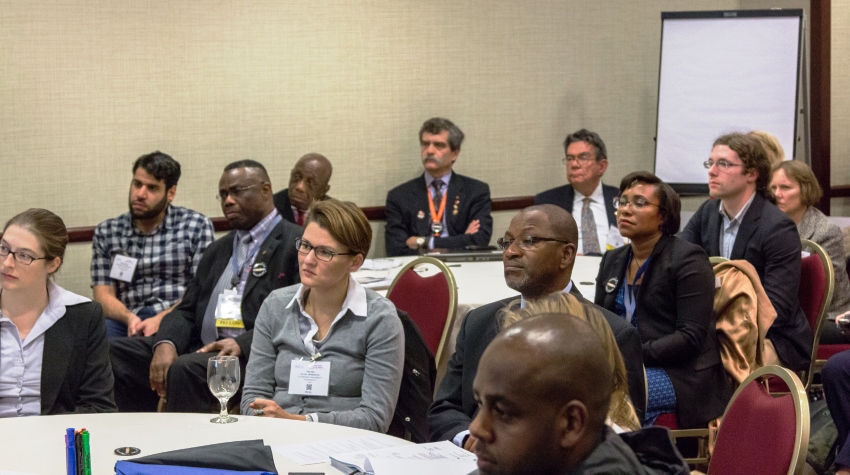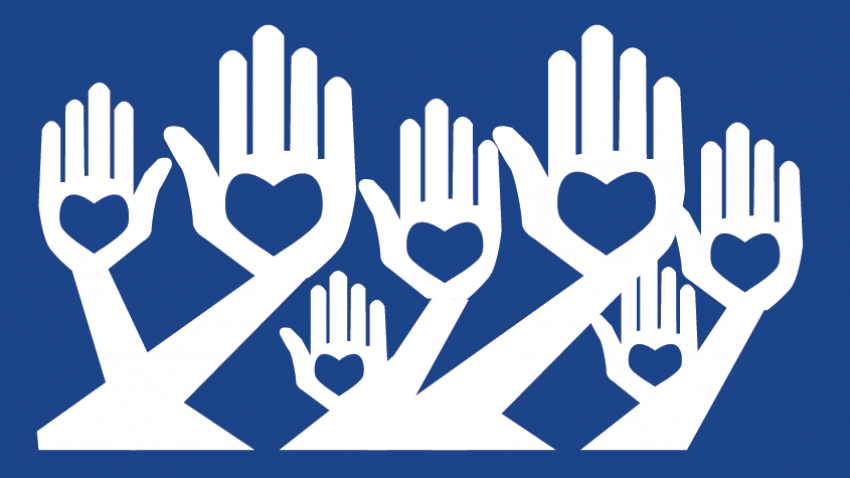
Engineering Diversity and Inclusion Summit
The summit elaborated on ideas generated at an earlier workshop devoted to engineering diversity programming, held at AIChE’s April 2015 Spring Meeting and Global Congress on Process Safety.
Zenaida Gephardt (Rowan University), past chair of AIChE’s Societal Impact Operating Council (SIOC), set the stage for the session by discussing AIChE’s history of diversity and inclusion efforts, which have recently included a 2014 Engineering Diversity Gala to support the Institute’s outreach programs, and the 2015 celebration of the Minority Affairs Committee’s (MAC’s) 25th anniversary. AIChE’s 2015 President Cheryl Teich (Dow Chemical Company) joined Gephardt in saluting MAC and highlighted the committee’s advocacy for engineers from underrepresented groups.
Gephardt then introduced Gilda A. Barabino, a leader in the biochemical industry and Dean of the Grove School of Engineering of the City University of New York (CUNY), who presented an overview of MAC’s accomplishments. Barabino, a co-founder in 1995 of MAC’s Minority Faculty Forum, noted the importance of AIChE and MAC’s activities in her own career, while underlining that minority and women engineers remain under-represented in chemical engineering.
Katherine Ziemer, chair of the SIOC and vice provost for curriculum and professor of chemical engineering at Northeastern University, mentioned that AIChE is working on an enhanced diversity statement to welcome all diverse people, retain all in AIChE membership, and engage all in the life of the Institute. AIChE committees must be diverse to be effective, Ziemer said.
Gephardt then introduced the afternoon’s panelists, beginning with the Keynote Speaker, Shariq Yosufzai, vice president for diversity, ombuds and university affairs at Chevron. Yosufzai began his comments by tracing his path as a foreign-born chemical engineer and successful industry leader. He stated that 90% of Chevron’s customer base is outside of the U.S., and that diversity is therefore a business imperative for the company. He added that chemical engineering is a great example of how a profession can make a difference in a nation’s growth and prosperity. Yosufzai also reported that, while 50% of all college graduates are women, only 19% of engineering graduates are women. To increase that number, Chevron is collaborating with AIChE, the Society for Women Engineers (SWE), and the Society of Petroleum Engineers (SPE) on initiatives to boost enrollment across population segments.
Chastity Harmon, Manager of University Relations and Diversity Outreach at Praxair, outlined the company’s diversity and inclusion strategy, which takes into account engineers’ talent, culture, training, and the marketplace. Harmon said that Praxair encourages diversity through partnerships with nonprofits, including AIChE.
The final panelist was Adrienne R. Minerick, the associate dean for research and innovation at Michigan Technological University. Minerick also serves as Chair of the American Society for Engineering Education’s (ASEE’s) Diversity Committee, and leads efforts to empower women. Minerick cited ASEE’s diversity statement as a model, adding that engineering is empowering society in unprecedented ways. Minerick noted that ASEE’s diversity efforts are geared toward women, but apply to all diversity efforts. She mentioned ASEE’s Year of Action on Diversity, which included workshops, student videos, newsletters, and best paper presentations.
Following the panelists’ presentations, Megan Donaldson, Chair of AIChE’s Women’s Initiative Committee, helped organize the attendees into breakout groups tasked with formulating proposals to move the Institute’s inclusiveness efforts forward. The ideas, she noted, would be submitted to receive financial support generated through the AIChE Foundation’s activities.

The groups reflected on ways to promote openness and inclusiveness in the Institute, taking into account the interests of underrepresented ethnic minorities; people with disabilities; lesbian, gay, bisexual, and transgender engineers; and other people. The discussion also considered institutional responsibility for diversity and inclusion, as well as personal responsibility in helping to create a diverse and inclusive culture in the chemical engineering community.
Among the programs recommended for future development by the summit participants were:
- A renewed focus on impacting society’s attitudes toward engineer, as a way to improve the supply pipeline from K-12 into college
- Enhanced guidance provided by AIChE to K–12 teachers, including new chemical engineering demonstration kits
- Increased involvement by AIChE in annual Engineers Week activities
- Awards and recognition to AIChE grassroots groups for exemplary community engagement activities
- New partnerships between AIChE and other nonprofits and industry to promote an inclusive and diverse engineering community
- A new communication plan to train groups — both inside and outside of AIChE — on the business imperative of inclusive workplaces and communities
The Institute’s diversity and inclusiveness efforts will continue at the 2016 Spring Meeting and Global Congress on Process Safety (April 10–13 in Houston, Texas), when the Societal Impact Operating Council hosts a Safe Zone workshop with the theme Making AIChE and Our Workplaces Welcoming.



